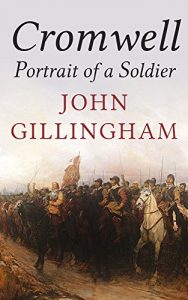Oliver Cromwell was more than just a fine soldier.
A man of outstanding gifts and forceful intellect, he saw more keenly than any other Civil War general the need for a new kind of warfare.
He saw that the rules of seventeenth-century warfare, as practised on the continent, were inappropriate to conditions in England and, with a politician's eye, he saw the importance of bringing the war to a swift conclusion.
Decisive in seeking battle and ruthless in pursuit, Cromwell's aggressive, Napoleonic style of warfare quickly established his reputation as a military commander of genius.
The early years of the Civil War witnessed not only his military apprenticeship — for unlike most of his colleagues and opponents he had no experience of war — but also the forging of the instrument with which the Civil War was won.
The cavalry regiments of the Eastern Association and the New Model Army were largely Cromwell's work. With these hand-picked, well trained and disciplined troops Cromwell was possessed of an advantage denied to otherwise skilled commanders like Waller.
Soldier, politician, statesman — Cromwell is most frequently compared with Caesar and Napoleon. All of them in the last resort owed their rise to their military skill. In Cromwell's case, given the circumstances of the first forty years of his life, this was an extraordinary, almost inexplicable talent. But like it or not, this pious, slovenly, middle-aged country gentleman came to live by the sword.
John Gillingham is Emeritus Professor of Medieval History at the London School of Economics and Political Science.[1] On 19 July 2007 he was elected into the Fellowship of the British Academy. He is renowned as an expert on the Angevin empire. His other titles include ‘The Wars of the Roses’.
Endeavour Press is the UK’s leading independent publisher of digital books.
A man of outstanding gifts and forceful intellect, he saw more keenly than any other Civil War general the need for a new kind of warfare.
He saw that the rules of seventeenth-century warfare, as practised on the continent, were inappropriate to conditions in England and, with a politician's eye, he saw the importance of bringing the war to a swift conclusion.
Decisive in seeking battle and ruthless in pursuit, Cromwell's aggressive, Napoleonic style of warfare quickly established his reputation as a military commander of genius.
The early years of the Civil War witnessed not only his military apprenticeship — for unlike most of his colleagues and opponents he had no experience of war — but also the forging of the instrument with which the Civil War was won.
The cavalry regiments of the Eastern Association and the New Model Army were largely Cromwell's work. With these hand-picked, well trained and disciplined troops Cromwell was possessed of an advantage denied to otherwise skilled commanders like Waller.
Soldier, politician, statesman — Cromwell is most frequently compared with Caesar and Napoleon. All of them in the last resort owed their rise to their military skill. In Cromwell's case, given the circumstances of the first forty years of his life, this was an extraordinary, almost inexplicable talent. But like it or not, this pious, slovenly, middle-aged country gentleman came to live by the sword.
John Gillingham is Emeritus Professor of Medieval History at the London School of Economics and Political Science.[1] On 19 July 2007 he was elected into the Fellowship of the British Academy. He is renowned as an expert on the Angevin empire. His other titles include ‘The Wars of the Roses’.
Endeavour Press is the UK’s leading independent publisher of digital books.






